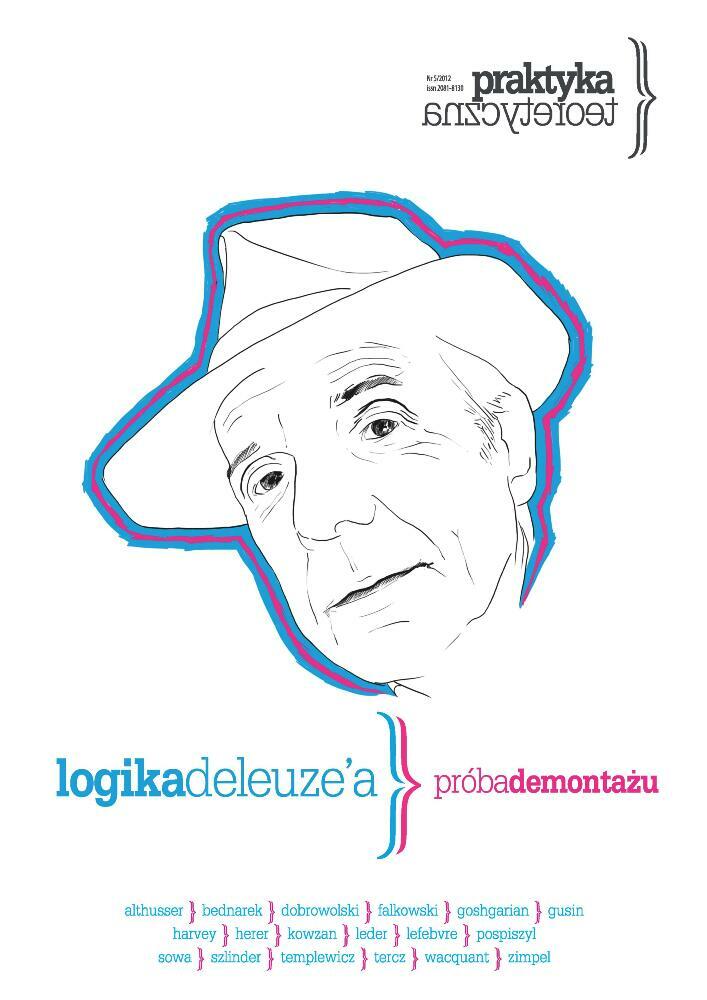Abstract
The article addresses the process of neoliberal transformation of the Soviet Bloc in the late 1980-ties and early 1990-ties as analyzed on the example of Poland. Its trajectory generally confirms Loïc Wacquant’s thesis put forward in his article Three steps to a historical anthropology of actually existing
neoliberalism, that neoliberalism tends to rather capture and use than simply dismantle and weaken state structures and power mechanisms. The author shows that the transition from planned to market economy in the former Soviet Bloc was also accompanied, backed and made possible by powerful
ideological operations that reshaped the construction of subjectivity and made it compatible with the neoliberal capitalism. This proves that two modes of analyzing neoliberalism – structural analysis of state power and focus on governmentality – should be treated as complimentary tools of understanding neoliberal transitions. However, contrary to Wacquant, the author claims that in this respect there is nothing new about neoliberalism as a practice, since capitalism has always required a help from the state to maintain a seemingly autonomous rule of the market.
References
Solidarność. 1981. „Program NSZZ „Solidarność” uchwalony przez Zjazd Delegatów dnia 7 października 1981 r. w Gdańsku”. Tygodnik Solidarność (29). 16 Października.
Anderson P. 1979. Lineages of the Absolutist State. London: Verso.
Arnett P. 1997. Transcript of Osama Bin Ladin Interview Aired by CNN in March. http://www.anusha.com/osamaint.htm.
Arrighi G. 1995. The Long 20th Century: Money. Power. and the Origins of Our Times. London: Verso.
Arvedlund E. 2005. “McDonald’s Commands a Real Estate Empire in Russia”. The New York Times 17 marzec.
Badiou A. 2009. Of an Obscure Disaster: on the End of State-Truth. Maastricht: Jan van Eyck.
Braudel F. 1979. Civilisation matérielle. économie et capitalisme. XVe-XVIIIe siècle. t. 2: Les jeux de l’échange. Paris: Le Livre de Poche.
Buck-Morss S. 2000. „Hegel and Haiti”. Critical Inquiry 26 (4) : 821-865.
Cliff T. 1974. State Capitalism in Russia. London: Pluto Press.
Debord G. 1998. Comments on the Society of the Spectacle. London: Verso.
Derrida J. 1981. Dissemination. Chicago: University of Chicago Press.
Foucault M. 2001. L’´ethique du souci de soi comme pratique de la liberté’. W Dits et écrits. t. 2. Paris: Gallimard.
Fukuyama F. 1989. „The End of History?”. The National Interest Summer 1989.
Goodwyn L. 1991. Breaking the Barrier: the Rise of Solidarity in Poland. New York: Oxford University Press.
Górniewicz G. 2003. Zadłużenie zagraniczne jako problem globalny. W Problemy globalizacji gospodarki. Szczecin.
Hilgers M. 2012. “The Historicity of the Neoliberal State”. Social Anthropology. 20 (1) : 80-94.
Illich I. 1974. Energy and Equity. London: Harper and Row.
Kaltwasser M., Majewska E., Szreder K. 2007. Industriestadtfuturismus: 100 Jahre Wolfsburg/Nowa Huta. Frankfurt am Main.
Klein N. 2007. The Shock Doctrine: the Rise of Disaster Capitalism. New York: Picador.
Kornai J. 1980. Economics of Shortage. Amsterdam-New York.
Majmurek J., Mikurda K., Sowa J. 2011. Un événement dans la glacière: le Carnaval de Solidarnosc (1980-81) comme jaillissement de l’imagination politique. W L’Idée du communisme. t. 2. Paris.
Marx K., Engel F. 1998. The Communist Manifesto: a Modern Edition with an Introduction by Eric Hobsbawm. London: Verso.
Marx K., Engel F. 1998. The German Ideology including Theses on Feurbach and Introduction to the Critique of Political Economy. Amherst.
Ost D. 2005. The Defeat of Solidarity: Anger and Politics in Postcommunist Europe. Ithaca: Cornell University Press.
Pereira L.C.B., Maravall J.M., Przeworski A. 1993. Economic Reforms in New Democracies: a Social-Democratic Approach. Cambridge.
Sachs J., Lipton D. 1989. „Skok w gospodarkę rynkową”. Gazeta Bankowa (36). 4 Września.
Sachs J., Lipton D. 1990. „Poland’s Economic Reform”. Foreign Affairs.
Sachs J.. The End of Poverty: Economic Possibilities for Our Time. New York: Penguin Books.
Sowa J. 2007. Ciesz się. późny wnuku: kolonializm. globalizacja i demokracja radykalna. Cracow: Korporacja Ha!art.
Staniszkis J. 2000. „Post-Communism: the Emerging Enigma”. Europe-Asia Studies 52 (6) : 1161-1162.
Taubman W. 2004. Khrushchev: the Man and His Era. London: W. W. Norton & Company.
Tittenbrun J. 1993. The Collapse of Real Socialism in Poland. London.
Urbański J. 2009. The Anatomy of the Polish Workers’ Protests. W Over and Over Again: 1989-2009. Cracow.
Wacquant L. 2012. “Three Steps to a Historical Anthropology of Actually Existing Neoliberalism”. Social Anthropology 20 (1) : 66-79.
Wallerstein I. 1974. The Modern World System I. Capitalist Agriculture and the Origins of the European World-Economy in the 16th Century. New York: Academic Press Inc..
Wallerstein I. 1986. “Societal Development or Development of the World-System?”. International Sociology 1 (1) : 3-17.
Wallerstein I. 1976. “The Rise and Future Demise of World Capitalist Systems: Concepts for Comparative Analysis”. Comparative Studies in Society and History 16 (4) : 387-415.
License
“Theoretical Practice” seeks to put into practice the idea of open access to knowledge and broadening the domain of the commons. It serves the development of science, thinking and critical reflection. The journal is published in open-access mode under the CC-BY-NC-SA 4.0 license (detail available here: http://creativecommons.org/licenses/by-nc-sa/4.0/). Articles published in the journal may be freely distributed, stored, printed and utilized for academic and teaching purposes without restrictions.
They should not be, however, used for any commercial purposes or be reconstructed into derivative creations. Access to the journal may not be limited or offered for a fee by any third party.
Prospective authors are obliged to fill in, sign and send back the publishing contract compliant with the CC licencing. [PL.pdf, PL.doc, EN.pdf,EN.doc].
According to this contract, authors grant the journal a non-exclusive right to publish their work under the creative commons license (CC-BY-NC-SA 4.0) without any financial obligation on both sides of the contract.
Before submission authors should make sure that derivative materials they use are not protected by copyright preventing their non-commercial publication. Authors are responsible for any respective copyright violations.
